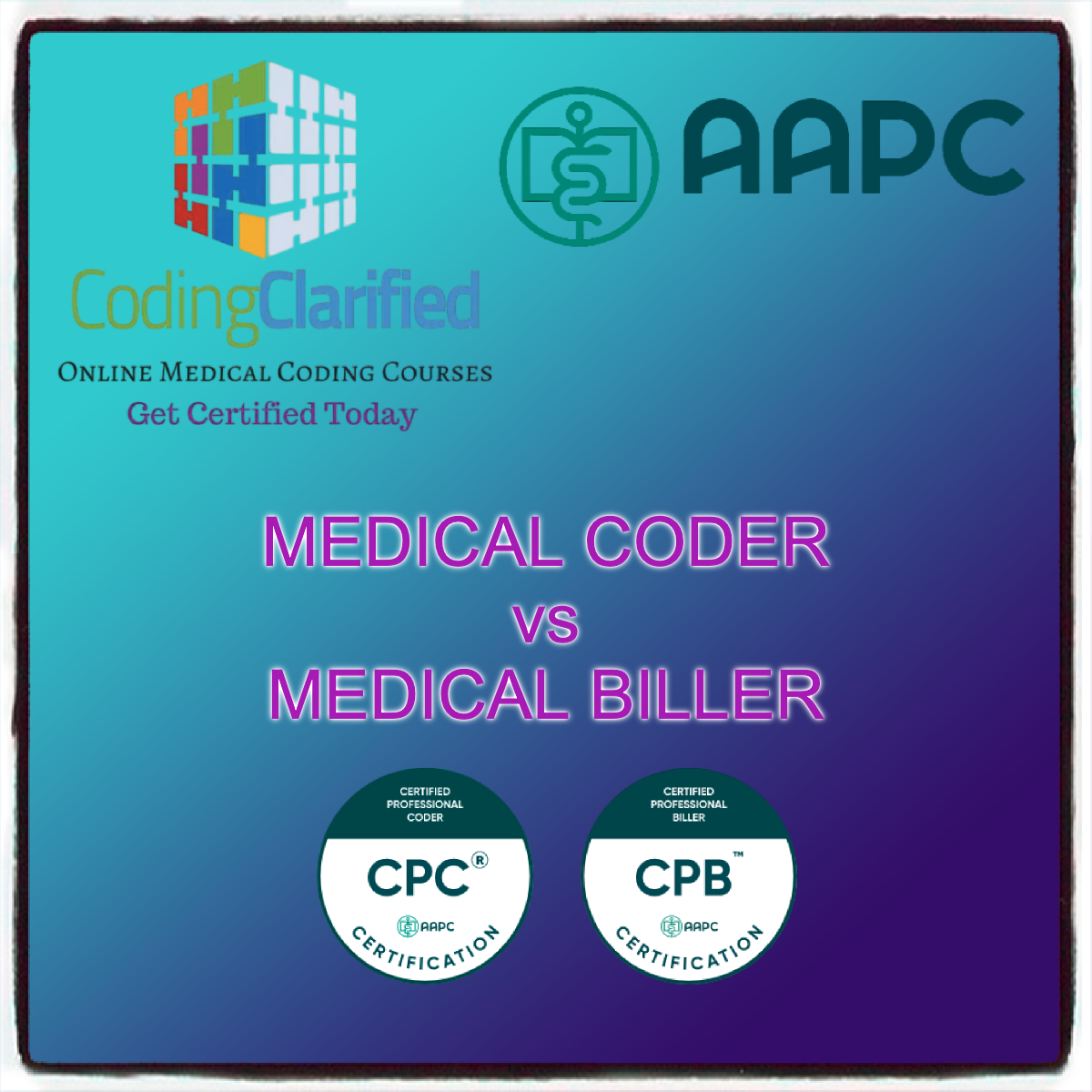Medical Billing vs. Medical Coding
Medical Coding
Medical Coding Definition
Medical coding involves translating healthcare services, procedures, diagnoses, and equipment into universal alphanumeric codes for standardized documentation, billing, and statistical analysis.
Coding Process
Certified medical coders review patient medical records and assign appropriate codes using code sets such as ICD-10-CM (International Classification of Diseases, 10th Revision, Clinical Modification) for diagnoses, CPT (Current Procedural Terminology) for procedures, and HCPCS (Healthcare Common Procedure Coding System) for supplies, equipment, and services.
What is the Purpose of Medical Coding?
The primary purpose of medical coding is to accurately and comprehensively describe the patient encounter in a standardized format for reimbursement, research, quality reporting, and healthcare analytics.
Medical Billing
Medical Billing Definition
Medical Billing involves the submission of coded healthcare services to insurance companies, government payers, or patients for reimbursement.
Medical Billing Process
Medical billers use coded information provided by medical coders to create claims or invoices, which are submitted to payers for payment. They verify insurance coverage, determine patient financial responsibility (co-payments, deductibles, etc.), and follow up on unpaid or denied claims.
What is the Purpose of Billing?
The main goal of billing is to ensure that healthcare providers receive timely and accurate reimbursement for services rendered to patients. Billing also involves managing accounts receivable and resolving any disputes or issues related to payment.
What are the Differences Between Medical Billing and Medical Coding?
Medical coding focuses on translating medical records into standardized codes where medical billing focuses on the submission and processing of claims. Explore the four main differences between medical billing and medical coding in more detail below:
- Focus: Coding focuses on translating clinical information into standardized codes, while billing focuses on the submission and processing of claims for reimbursement.
- Skill Sets: Medical coding requires strong analytical skills, attention to detail, and knowledge of medical terminology, anatomy, and coding guidelines. Medical billing requires proficiency in insurance billing procedures, claims processing software, and communication with payers and patients.
- Timing: Coding typically occurs before billing, as coded information is needed to generate claims. However, billing activities continue throughout the revenue cycle, including claim submission, payment posting, and accounts receivable management.
- Regulatory Compliance: Both coding and billing professionals must adhere to regulatory requirements, such as HIPAA (Health Insurance Portability and Accountability Act) regulations for patient privacy and security, as well as payer-specific billing guidelines and reimbursement policies.
In summary, while coding and billing are interconnected processes within the healthcare revenue cycle, they serve distinct functions and require different skill sets. Effective coordination between coding and billing teams is essential to ensure accurate reimbursement and compliance with regulatory requirements.
Bridging the Gap Between Medical Billing and Coding
In the healthcare revenue cycle, medical billing and medical coding are vital but distinct functions. While coding translates clinical information into standardized codes for documentation and analysis, billing ensures that healthcare providers receive accurate and timely reimbursement for their services. The synergy between these roles is crucial for maintaining the integrity of patient records, optimizing financial outcomes, and ensuring compliance with complex regulatory standards. To deepen your understanding or start a career in this field, consider enrolling in a medical coding course. By understanding their differences and working together, coding and billing professionals play a critical role in the smooth operation of healthcare systems.
Additional Medical Coding Resources:

